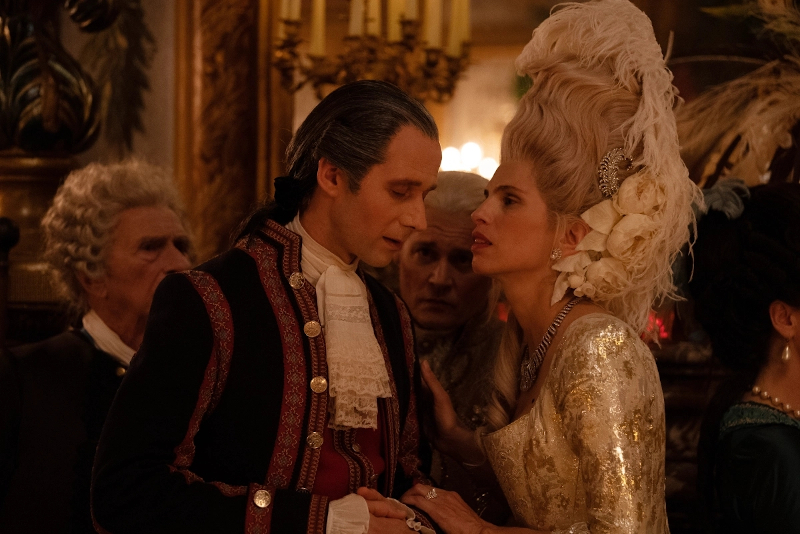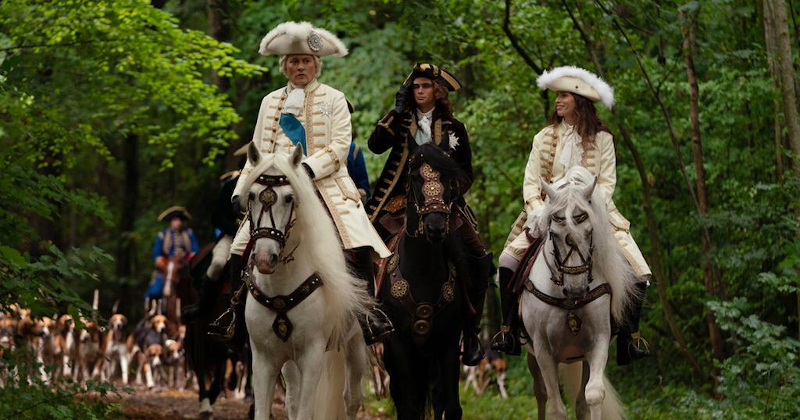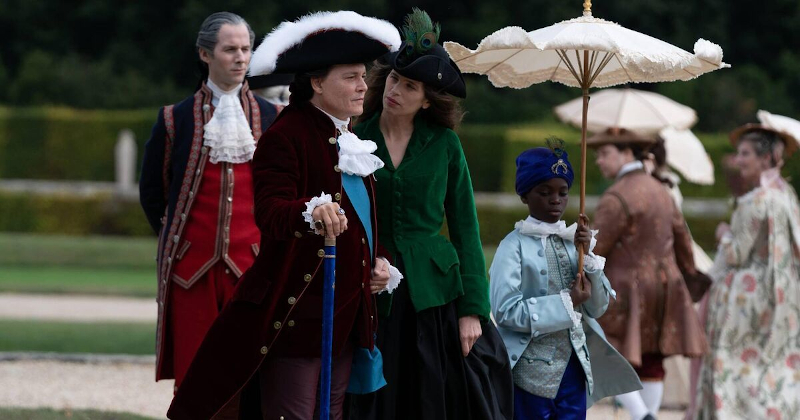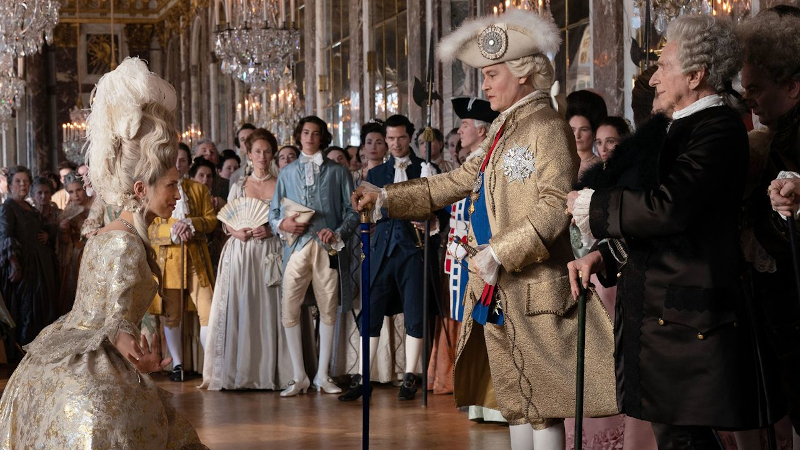Director – Maïwenn – 2023 – France – Cert. 15 – 117m
***1/2
A commoner works her way into the King of France’s affections and becomes a member of the aristocracy – out in UK cinemas on Friday, April 19th
Born of the illicit union between a monk and a cook, the latter (Marianne Basler) taken in along with her daughter by the kindly M. Dumousseaux (Robin Renuchi) who ensures the child gets a decent education, Jeanne (Maïwenn) quickly realises her only viable career options are cooking, which she has no intention of pursuing, and harlotry. Before long, favoured client Compte Jean du Barry suggests to her that she should meet the King. To achieve this, she would need to become part of the King’s court for which a title is required, so she marries Jean in order to become the Countess du Barry and be presented to the King, Louis XV (Johnny Depp) .

Catching his majesty’s eye and favour, she is invited to his apartment, like many other women before or after her (although one suspects there were more before than after). Before meeting him alone, she is schooled in royal etiquette by the King’s trusted, right-hand man La Borde (Benjamin Lavernhe). She must never turn her back to the royal person and leave his presence or move away from him by shuffling backwards in little steps, something she finds too silly for words and, in the event, fails to do. Which doesn’t seem to matter because Louis, completely bowled over by her charms, allows her to get away with it. In the remainder of the film, we see various members of the court engaged in this protocol and to us, as from Jeanne’s perspective, it does indeed look extremely silly.
So too with the complex rigmarole that the king goes through every day upon waking up involving a dozen or two people, which he allows her to watch through a one-way mirror the morning after they first spend the night together.
She is given her own apartments and staff to wait upon her and becomes the King’s constant companion, not only in his bedchamber but also, dressed as a man, accompanying him on otherwise all-male hunting trips. Her attire – and her eschewing of wearing a wig – might be mocked by others in the court, but soon it becomes a trend set by Jeanne for others to discuss or follow. The trustworthy La Borde is a reliable source of good counsel and Jeanne, like the King, comes to rely upon him.

Her common background means that many courtiers look down on her and the royal daughters give her a hard time, although the hunchbacked Sophie (Laura Le Velly) – the King’s favourite – is more considered in her response and, ultimately, more sympathetic. The Dauphin (Diego Le Fur) is kind to her; however, his betrothed Marie-Antoinette of Austria (Pauline Pollmann) provers less so, until it is contrived for the latter to speak (the merest of words) to Jeanne as a sign of acceptance. If all is not entirely rosy all the time – Jeanne occasionally finds other women have been ushered out of the King’s bedchamber before she arrives – she remains with the King until he dies of smallpox, at which point she is taken by carriage to a house in the country to live out the rest of her days.
Apart from some nudity in a brief brothel sequence near the start, director and star Maïwenn largely eschews eroticism or any sexual antics in favour of portraying Jeanne as companion and friend to the king, complete with moving bedside scenes (two, actually, because she comes back for a second scene) when he is dying. Much fun is had at the expense of the court and its protocols. The art, costume design and make-up-and hair departments have a field day with the Versailles interiors and fashions, and the whole thing is a feast for the eyes.

There’s a sting in the tale too – from the moment the presence of Marie-Antoinette is announced, your typical Brit audience member, possessed of a smattering of French history, realises that she is the generation of royals who will be executed by the disgruntled peasants during the upcoming French Revolution. As an end title points out, Jeanne, like Marie Antoinette, would be taken to Paris after 15 years in the countryside to meet her end via the guillotine.
Maïwenn is clearly spirited and passionate about making the film, yet I personally couldn’t really see in either her presence or her performance whatever it was about the real life Jeanne du Barry that so attracted the King. Depp, who was partnered for quite some time with French actress Vanessa Paradis, is clearly fluent in French, and it comes as something of a surprise to realise he’s never made a film in that language before. Strangely enough, the most memorable part is neither of the two leads, but rather the King’s fixer La Borde, an arresting and memorable turn by Benjamin Lavernhe.
Otherwise, the film is pleasant enough with lots of memorable costumes, and washes over the viewer in an enjoyable enough way. A likeable afternoon’s viewing, as far as it goes.
Jeanne du Barry is out in cinemas in the UK on Friday, April 19th.
Trailer (French language):
